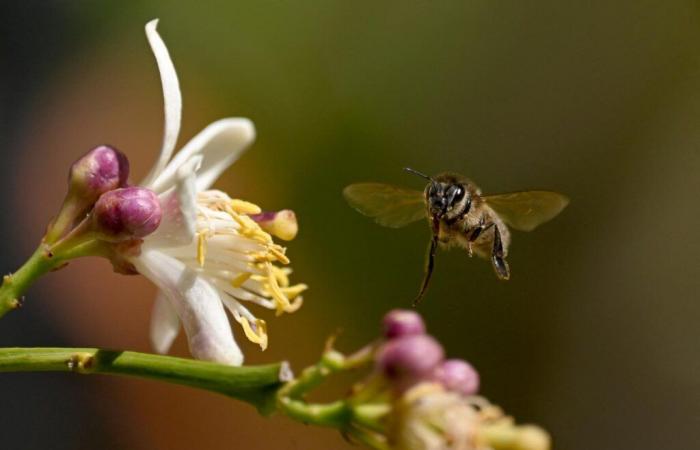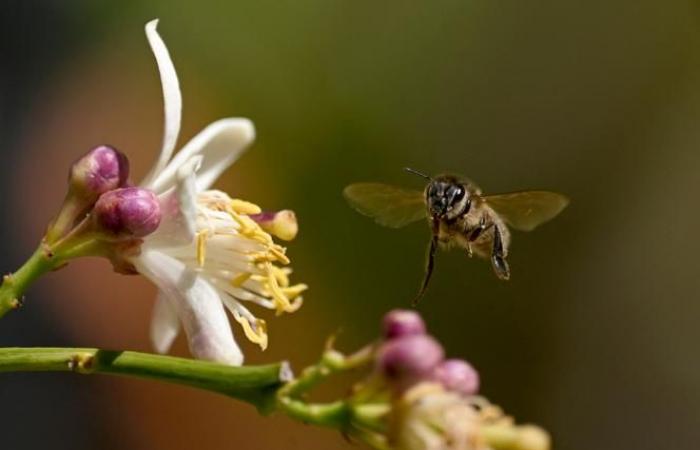The figures published on Friday November 15 confirm the apprehensions of the beekeeping industry: the honey harvest should be around 20,000 tonnes in 2024, down almost 30% compared to previous years. The estimate comes from a survey of 678 beekeepers by the National Federation of the Apicultural Development Network (ADA), which describes the year as “catastrophic to poorly productive”depending on the region. Production is declining sharply in Auvergne-Rhône-Alpes, Brittany, the Grand-Est, Ile-de-France, Burgundy-Franche-Comté, and Hauts-de-France.
In question “rain, cold and, very often, wind, [qui] stopped the first spring honey flows and the development of coloniesthe ADA lists. Spring foraging has become difficult [très peu de fenêtres temporelles, fleurs lessivées]the bees quickly consumed the reserves collected at the start of the year ». In the majority of regions, beekeepers have had to feed their colonies to keep them alive.
“This year was unprecedentedconfirms Henri Clément, secretary general of the National Union of French Beekeepers (UNAF). If we hadn't fed them, many colonies would have died. » Its hives are mainly located in Lozère. Here, like almost everywhere in France, the winds were strong in spring, the temperatures cool and the rains abundant.
Frank Alétru, president of the National Beekeeping Union (SNA) in France and the Association of European Professional Beekeepers, delved into the archives of The Bee of Francethe centenary magazine of the SNA: “I have found no trace of such a calamitous spring, which lasts several consecutive months, and which affects three quarters of France. »
Rarer food
However, this season is decisive for beekeeping. Resting during the winter, the queen begins to lay eggs again as the sunny days approach, and the bees resume their work: gathering flowers, building the cells of the hive, feeding the larvae, producing and storing honey. Rain, strong winds and cold prevent pollinators from coming out. They then feed on their reserves. Outside, food is also scarcer: the plants started flowering late this spring because of the weather.
This episode occurred while previous years were marked by recurrent droughts. “The climatic upheaval and its different facets, felt by beekeepers for a good fifteen years, is omnipresent”notes the UNAF. For Henri Clément, it is about “biggest current challenge for beekeepers”.
You have 58.31% of this article left to read. The rest is reserved for subscribers.







